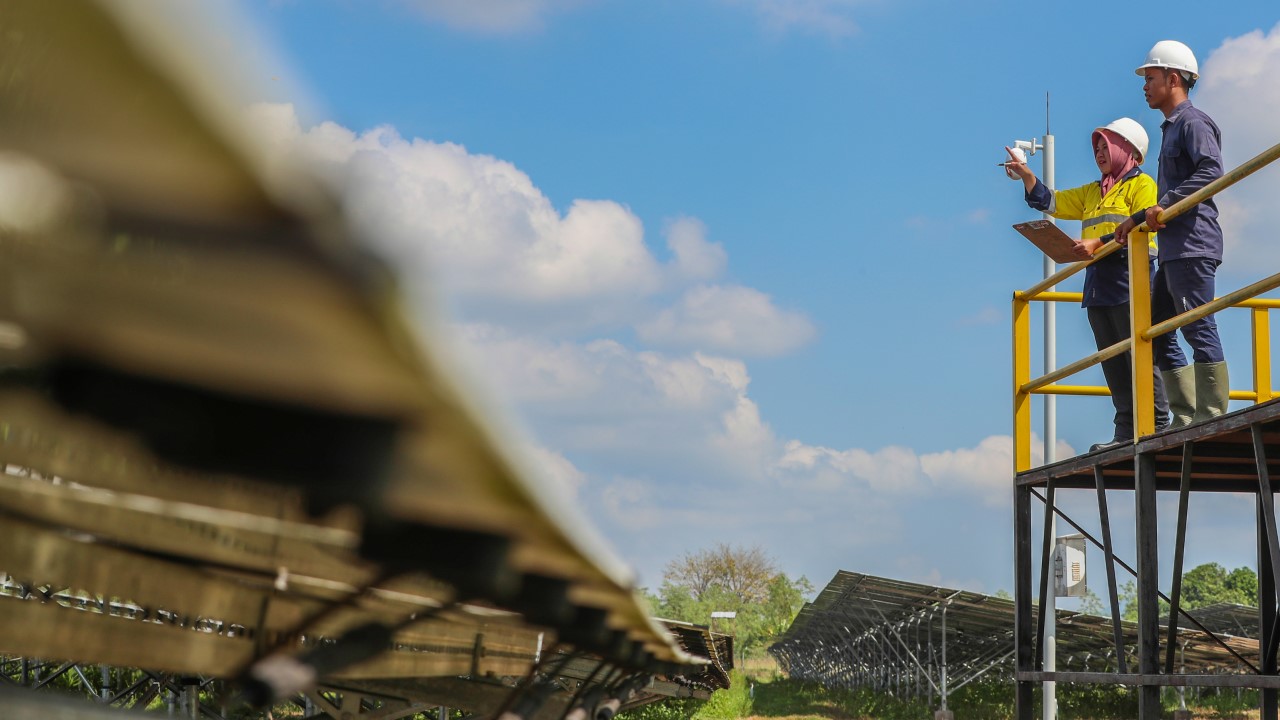
Sustainable and Inclusive Energy Program (Subprogram 3)
Energy sector reform in Indonesia, through 31.89% GHG emission reduction and net zero by 2060.
Sectors
EnergyCountry
IndonesiaPartners
Kreditanstalt für WiederaufbauEconomic Development Cooperation Fund
Approval
Financing
Total Project Cost
$867 million
ADB Financing
$500 million
AIF Financing
$15 million
KfW Cofinancing
$292 million
EDCF Cofinancing
$60 million
Climate Impacts
CO₂ emissions reduced
28,400,000 tCO₂e /year
Share of project cost classified as climate finance
64%
Private financing catalyzed
$1,250 million indirectly through policy actions
ISSUE
An inefficient energy sector with regulatory barriers to the promotion of sustainable energy and energy efficiency measures, and inadequate private investments.
A number of factors have contributed to the failure to provide incentives for innovative, efficient low-carbon technologies to address project risks and financial and technical hurdles in Indonesia. Weak sector governance arrangements have stalled progress in energy prices and subsidy reform, held back improvements to the sector’s financial and economic viability, and constrained private investment. Frequent changes in energy policy have generated uncertainty over the government’s direction. Project implementation has been stalled by delays in enacting and implementing rules and regulations, sometimes inconsistent with related non-energy regulations. Progress toward the national target of increasing the share of renewable energy to 23% of the primary energy mix has been slow.
SOLUTION
Support Indonesia’s energy sector reform for increased supply of sustainable and more accessible energy.
Subprogram 3 was approved for financing by ADB in November 2022. It will continue to support the transformation of Indonesia’s energy sector through reforms initiated in 2014, which aim to improve fiscal sustainability and governance, expand private investment, and promote the deployment of clean and efficient energy options. Subprogram 3 specifically supports the government’s energy sector reforms under the National Medium-Term Development Plan 2020–2024, its target of 29% greenhouse gas emission reduction under its nationally determined contribution (NDC), and its plans to reach net zero by 2060 and phase out coal generation.
How did ACGF help?
In 2021, ACGF provided technical assistance to support the environmental and social impact assessment of existing policies to screen safeguard risks and impacts and quantify the climate change components of the project. The assessment confirmed that potential adverse impacts can be adequately addressed through existing country systems and ADB’s ongoing support to Indonesia’s State Electricity Corporation (PLN) institutional and regulatory safeguards system. ACGF contributed to project co-financing from AIF as well as KfW and Republic of Korea’s Economic Development Co-operation Fund (EDCF).